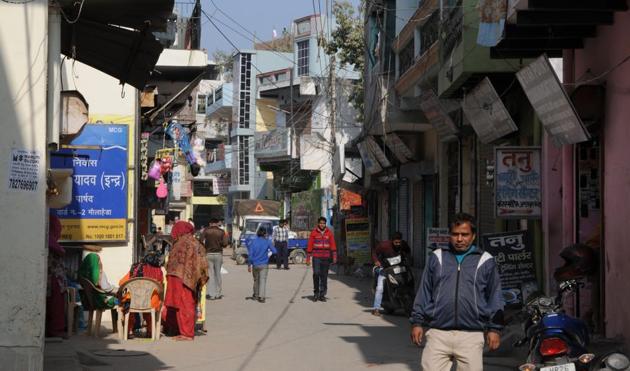Note ban disrupts Gurgaon’s migrant-fuelled village economies
Small economies based on migrant population were flourishing till demonetisation was announced
Octogenarian Chameli Devi of Mollahera village does not remember her exact age, but asserts that never in her life has she seen a decision more disruptive than demonetisation, which she says has brought nothing but misery to the low-income migrant workers who live in her village.

Mollahera is one of Gurgaon’s 39 urbanised villages where thousands of workers stay because of the low rents and affordable cost of living. In fact, the huge migrant population has spawned small economies of their own within the city that were flourishing till the demonetisation announcement on November 8 brought everything to a halt.
“I have never seen so much pain and misery in my life. People have no money to buy food, there is no work, and those who have no bank accounts are finding it tough to survive. Dihadi lagaye ya note ke peeche bhagein (Should they do a day’s work or run after notes?),” said Chameli Devi, unperturbed by villagers joking that authorities would look for her for speaking against demonetisation.
Shopkeepers, service providers, and other small traders in Mollahera and other villages in Gurgaon admit that there has been a drop of almost 50% in business since November 8. “I used to have an average sale of around Rs3,000 daily. Now my earning is not over Rs800. I am not able to meet my own expenses,” says Ganesh Jena, who sells fruit juice in Mollahera.
Sales at grocery shops, pharmacies, provision stores, chicken and meat shops, beauty parlours, and cloth shops etc. in this and neighbouring villages such as Dundahera, Kapashera have dwindled. The case is the same at villages beyond Delhi-Gurgaon expressway in Chakkarpur, Sikanderpur and Nathupur.
“We gave goods on credit for a month, but there is a limit to it as we too have to pay cash to get supply from wholesalers. Sales are down and we don’t even have a card swipe machine,” said Randhir Singh, a store owner.
Service providers such as Deepak, who runs a hair salon, Rajesh Yadav, a caterer, and Vinay, a tailor, also said that their businesses have suffered an almost 70% loss. “Our relatives are spread across Gurgaon and they say the situation is equally bad everywhere. Fresh migration has come to a standstill and people have started returning to their native places,” said Pawan Kumar, who sells plastic wares in Mollahera.
While survival has indeed become difficult in these villages, the only silver lining has been that a majority of migrants in these villages are industrial workers who are getting salaries in cheques or credited to their accounts. However, they are haunted by the lack of cash in hand. As the village economy tries to go cashless, everybody admits the chase is going to be painful.




